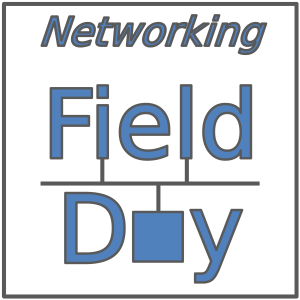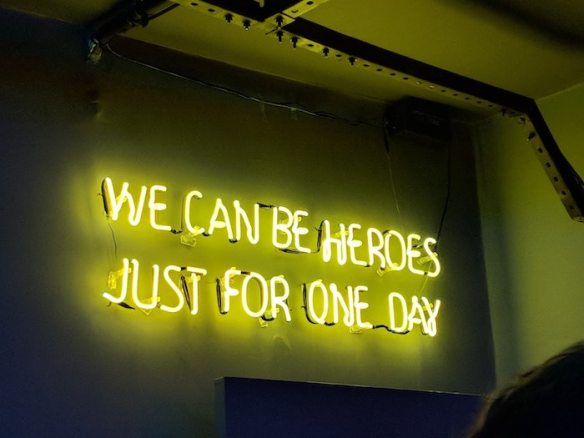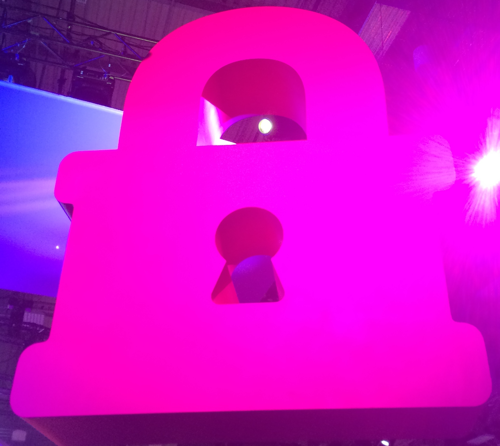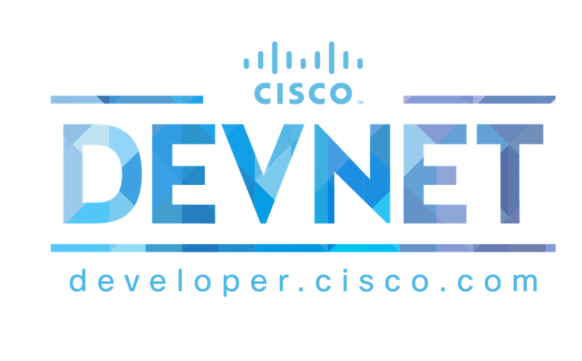AI and Trivia

Photo by Pixabay on Pexels.com
I didn’t get a chance to attend Networking Field Day Exclusive at Juniper NXTWORK 2019 this year but I did get to catch some of the great live videos that were recorded and posted here. Mist, now a Juniper Company, did a great job of talking about how they’re going to be extending their AI-driven networking into the realm of wired networking. They’ve been using their AI virtual assistant, named “Marvis”, for quite a while now to solve basic wireless issues for admins and engineers. With the technology moving toward the copper side of the house, I wanted to talk a bit about why this is important for the sanity of people everywhere.
Finding the Answer
Network and wireless engineers are walking storehouses of useless trivia knowledge. I know this because I am one. I remember the hello and dead timers for OSPF on NBMA networks. I remember how long it takes BGP to converge or what the default spanning tree bridge priority is for a switch. Where some of my friends can remember the batting average for all first basemen in the league in 1971, I can instead tell you all about Continue reading
The Future of Hidden Features
 You may have noticed last week that Ubiquiti added a new “feature” to their devices in a firmware updated. According to this YouTube video from @TomLawrenceTech, Ubiquiti built an new service that contacts a URL to “phone home” and check in with their servers. It got some heavy discussion going, especially on Reddit.
You may have noticed last week that Ubiquiti added a new “feature” to their devices in a firmware updated. According to this YouTube video from @TomLawrenceTech, Ubiquiti built an new service that contacts a URL to “phone home” and check in with their servers. It got some heavy discussion going, especially on Reddit.
The consensus is that Ubiquiti screwed up here by not informing people they were adding the feature up front and also not allowing users to opt-out initially. The support people at Ubiquiti even posted a quick workaround of blocking the URL at a perimeter firewall to prevent the communications until they could patch in the option to opt-out. If this was an isolated incident I could see some manner of outcry about it, but the fact of the matter is that companies are adding these hidden features more and more every day.
The first issue comes from the fact that most release notes for apps any more are nothing aside from platitudes. “Hey, we fixed some bugs and stuff so turn on automatic updates so you get the best version of our stuff!” is somewhat common now when it comes to a list of Continue reading
In Defense of Support

We’re all in IT. We’ve done our time in the trenches. We’ve…seen things, as Roy Batty might say. Things you wouldn’t believe. But in the end we all know the pain of trying to get support for something that we’re working on. And we know how painful that whole process can be. Yet, how is it that support is universally “bad” in our eyes?
One Of Us
Before we launch into this discussion, I’ll give you a bit of background on me. I did inbound tech support for Gateway Computers for about six months at the start of my career. So I wasn’t supporting enterprises to start with but I’ve been about as far down in the trenches as you can go. And that taught me a lot about the landscape of support.
The first thing you have to realize is that most Tier 1 support people are, in fact, not IT nerds. They don’t have a degree in troubleshooting OSPF or are signatories to the fibre channel standards. They are generally regular people. They get a week or two of training and off they go. In general the people on the other end of the support phone number are Continue reading
The End of SD-WAN’s Party In China

As I was listening to Network Break Episode 257 from my friends at Packet Pushers, I heard Greg and Drew talking about a new development in China that could be the end of SD-WAN’s big influence there.
China has a new policy in place, according to Axios, that enforces a stricter cybersecurity stance for companies. Companies doing business in China or with offices in China must now allow Chinese officials to get into their networks to check for security issues as well as verifying the supply chain for network security.
In essence, this is saying that Chinese officials can have access to your networks at any time to check for security threats. But the subtext is a little less clear. Do they get to control the CPE as well? What about security constructs like VPNs? This article seems to indicate that as of January 1, 2020, there will be no intra-company VPNs authorized by any companies in China, whether Chinese or foreign businesses in China.
Tunnel Collapse
I talked with a company doing some SD-WAN rollouts globally in China all the way back in 2018. One of the things that was brought up in that interview was that Continue reading
Locked Up By Lock-In

When you start evaluating a solution, you are going to get a laundry list of features and functionality that you are supposed to use as criteria for selection. Some are important, like the ones that give you the feature set you need to get your job done. Others are less important for the majority of use cases. One thing tends to stand out for me though.
Since the dawn of platforms, I believe the first piece of comparison marketing has been “avoids lock-in”. You know you’ve seen it too. For those that may not be completely familiar with the term, “lock-in” describes a platform where all the components need to come from the same manufacturer or group of manufacturers in order to work properly. An example would be if a networking solution required you to purchase routers, switches, access points, and firewalls from a single vendor in order to work properly.
Chain of Fools
Lock in is the greatest asset a platform company has. The more devices they can sell you the more money they can get from you at every turn. That’s what they want. So they’re going to do everything they can to keep you in their ecosystem. Continue reading
Procrastination Party

“I’ll get to that later.”
“I’m not feeling it right now.”
“I have to find an angle.”
“It will be there tomorrow.”
Any of those sound familiar? I know they do for me. That’s because procrastination is the beast that lives inside all of us. Slumbering until a time when it awakes and persuades us to just put things off until later. Can’t hurt, right?
Brain Games
The human brain is an amazing thing. It is the single largest consumer of nutrients and oxygen in the human body. It’s the reason why human babies are born practically helpless due to the size in relation to the rest of an infant. It’s the reason why we can make tools, ponder the existence of life in the universe, and write kick-ass rock and roll music.
But the human brain is lazy. It doesn’t like thinking. It prefers simple patterns and easy work. Given a choice, the human brain would rather do some kind of mindless repetitive task ad naseum instead of creating. When you think about it that makes a lot of sense from a biological perspective. Tasks that are easy don’t engage many resources. Which means the Continue reading
Fast Friday Thoughts – Networking Field Day 21

This week has been completely full at Networking Field Day 21 with lots of great presentations. As usual, I wanted to throw out some quick thoughts that fit more with some observations and also to set up some topics for deeper discussion at a later time.
- SD-WAN isn’t just a thing for branches. It’s an application-focused solution now. We’ve moved past the technical reasons for implementation and finally moved the needle on “getting rid of MPLS” and instead realized that the quality of service and other aspects of the software allow us to do more. That’s especially true for cloud initiatives. If you can guarantee QoS through your SD-WAN setup you’re already light years ahead of where we’ve been already.
- Automation isn’t just figuring out how to make hardware and software do things really fast. It’s also about helping humans understand which things need to be done fast and automatically and which things don’t. For all the amazing stuff that you can do with scripting and orchestration there are still tasks that should be done manually. And there are plenty of people problems in the process. Really smart companies that want to solve these issues should stop focusing on using Continue reading
The Certification Ladder

Are you climbing the certification ladder? If you’re in IT the odds are good that you are. Some people are just starting out and see certifications as a way to get the knowledge they need to do their job. Others see certs as a way to get out of a job they don’t like. Still others have plenty of certifications but want to get the ones at the top of their field. This last group are the ones that I want to spend some time talking about.
Pushing The Limit
Expert-level certifications aren’t easy on purpose. They’re supposed to represent the gap between being good at something and going above and beyond. For some that involves some kind of practical test of skills like the CCIE. For others it involves a board interview process like the VCDX. Or it could even involve a combination of things like the CWNE does with board review and documentation submissions.
Expert certifications aren’t designed to be powered through in a short amount of time. That’s because it’s difficult to become an expert at something without putting in the practice time. For some tests, that means meeting some minimum requirements. You can only attempt your Continue reading
It’s A Wireless Problem, Right?

How many times have your users come to your office and told you the wireless was down? Or maybe you get a phone call or a text message sent from their phone. If there’s a way for people to figure out that the wireless isn’t working they will not hesitate to tell you about it. But is it always the wireless?
Path of Destruction
During CWNP Wi-Fi Trek 2019, Keith Parsons (@KeithRParsons) gave a great talk about Tips, Techniques, and Tools for Troubleshooting Wireless LAN. It went into a lot of detail about how many things you have to look at when you start troubleshooting wireless issues. It makes your head spin when you try and figure out exactly where the issues all lie.
However, I did have to put up a point that I didn’t necessarily agree with Keith on:
Keynote Hate – Celebrity Edition

We all know by now that I’m not a huge fan of keynotes. While I’ve pulled back in recent years from the all out snark during industry keynotes, it’s nice to see that friends like Justin Warren (@JPWarren) and Corey Quinn (@QuinnyPig) have stepped up their game. Instead, I try to pull nuggets of importance from a speech designed to rally investors instead of the users. However, there is one thing I really have to stand my ground against.
Celebrity Keynotes.
We’ve seen these a hundred times at dozens of events. After the cheers and adulation of the CEO giving a big speech and again after the technical stuff happens with the CTO or product teams, it’s time to talk about…nothing.
Celebrity keynotes break down into two distinct categories. The first is when your celebrity is actually well-spoken and can write a speech that enthralls the audience. This means they get the stage to talk about whatever they want, like their accomplishments in their career or the charity work their pushing this week. I don’t mind these as much because they feel like a real talk that I might want to attend. Generally the celebrity talking Continue reading
IT Hero Culture

I’ve written before about rock stars and IT super heroes. We all know or have worked with someone like this in the past. Perhaps we still do have someone in the organization that fits the description. But have you ever stopped to consider how it could be our culture that breeds the very people we don’t want around?
Keeping The Lights On
When’s the last time you got recognition for the network operating smoothly? Unless it was in response to a huge traffic spike or an attack that tried to knock you offline, the answer is probably never or rarely. Despite the fact that networks are hard to build and even harder to operate, we rarely get recognized for keeping the lights on day after day.
It’s not all that uncommon. The accounting department doesn’t get recognized when the books are balanced. The janitorial staff doesn’t get an exceptional call out when the floors are mopped. And the electric company doesn’t get a gold star because they really did keep the lights on. All of these things are examples of expected operation. When we plug something into a power socket, we expect it to work. When we plug a router Continue reading
Positioning Policy Properly

Who owns the network policy for your organization? How about the security policy?Identity policy? Sound like easy questions, don’t they? The first two are pretty standard. The last generally comes down to one or two different teams depending upon how much Active Directory you have deployed. But have you ever really thought about why?
During Future:NET this week, those poll questions were asked to an audience of advanced networking community members. The answers pretty much fell in line with what I was expecting to see. But then I started to wonder about the reasons behind those decisions. And I realized that in a world full of cloud and DevOps/SecOps/OpsOps people, we need to get away from teams owning policy and have policy owned by a separate team.
Specters of the Past
Where does the networking policy live? Most people will jump right in with a list of networking gear. Port profiles live on switches. Routing tables live on routers. Networking policy is executed in hardware. Even if the policy is programmed somewhere else.
What about security policy? Firewalls are probably the first thing that come to mind. More advanced organizations have a ton of software that scans for security Continue reading
The Sky is Not Falling For Ekahau

Ekahau Hat (photo courtesy of Sam Clements)
You may have noticed quite a few high profile departures from Ekahau recently. A lot of very visible community members, concluding Joel Crane (@PotatoFi), Jerry Olla (@JOlla), and Jussi Kiviniemi (@JussiKiviniemi) have all decided to move on. This has generated quite a bit of discussion among the members of the wireless community as to what this really means for the company and the product that is so beloved by so many wireless engineers and architects.
Putting the people aside for a moment, I want to talk about the Ekahau product line specifically. There was an undercurrent of worry in the community about what would happen to Ekahau Site Survey (ESS) and other tools in the absence of the people we’ve seen working on them for so long. I think this tweet from Drew Lentz (@WirelessNerd) best exemplifies that perspective:
Fast Friday – Mobility Field Day 4
This week’s post is running behind because I’m out in San Jose enjoying great discussions from Mobility Field Day 4. This event is bringing a lot of great discussion to the community to get everyone excited for current and future wireless technologies. Some quick thoughts here with more ideas to come soon.
- Analytics is becoming a huge driver for deployments. The more data you can gather, the better everything can be. When you start to include IoT as a part of the field you can see why all those analytics matter. You need to invest in a lot of CPU horsepower to make it all work the way you want. Which is also driving lots of people to build in the cloud to have access to what they need on-demand from an infrastructure side of things.
- Spectrum is a huge problem and source of potential for wireless. You have to have access to spectrum to make everything work. 2.4 GHz is pretty crowded and getting worse with IoT. 5 GHz is getting crowded as well, especially with LAA being used. And the opening of the 6 GHz spectrum could be held up in political concerns. Are there new investigations Continue reading
Fast Friday- Black Hat USA 2019

I just got back from my first Black Hat and it was an interesting experience. It was crazy to see three completely different security-focused events going on in town all at once. There was Black Hat, B-Sides Las Vegas, and DEFCON all within the space of a day or so of each other. People were flowing back and forth between them all and it was quite amazing.
A wanted to share a few quick thoughts about the event from my perspective being a first timer.
- The show floor wasn’t as bit as VMworld or Cisco Live, but it was as big as it needed to be. Lots of companies that I’ve heard of, but several more that were new to me. That’s usually a good sign of lots of investment in the security space.
- Speaking of which, I talked to quite a few companies about a variety of analytics, telemetry, and insider threat monitoring solutions. And almost all of them had a founder from Israel or someone that was involved in the cybersecurity areas of the IDF. That’s a pretty good track record for where the investment is going.
- The Vegas booth gimmicks never change. I think I’ve spent too Continue reading
Conference Packing – The Little Things
It seems like conference season never really ends. Between RSA, Cisco Live, Black Hat, and VMworld, I’m always running around to something. I enjoy being able to meet new people and talk to companies at these events but I also find that a little bit of planning ahead helps immensely.
There’s always a lot of discussion from people about what to pack for a conference. There have been some great posts written about it, like this one from Bob McCouch in 2014. He definitely covers all the important stuff that people would want to know, such as comfortable shoes and a bag big enough to carry extra things just in case you come back with enough fidget spinners to sink an aircraft carrier.
However, I’ve found in recent years that the difference between just surviving a conference and really being prepared involves a few extra items I never thought I’d need to bring back when I first started doing this in 2006. Maybe it’s the Scoutmaster in me, but being prepared has gone from being a suggestion to a necessity. And here are a few of those little necessities that I have found I can’t live without.
First? Aid.

I’ve Continue reading
IT Burnout – The Task List

Sadly, this picture above is me. I used to think I had one of the best memories in the world. It turns out my memory is well-suited for bar trivia and routing protocol esoterics. My memory doesn’t appear so adept at remembering other little things that are of more important, such as remembering to buy a gift for a birthday or following up on an email that I sent last week.
Human brains are great at processing information. But some of the ones that are best at processing it are horrible at recalling it. I think of it not unlike a three-tiered storage array. The fast access tasks are in the fastest storage tier where they are needed. The longer term but less important info goes into the near-line tier where it can be recalled when needed. And in my case, the bandwidth to that tier is slow and unreliable.
Exciting Things!
One of my solutions to this problem is getting better with task management. As bad as my memory is, it’s also not well suited to writing things down to remember them. The irony is almost too delicious to ignore. I need to write things down so I don’t Continue reading
I Was A 10x Engineer. And I’m Sorry.

You probably saw the big discussion this past weekend on Twitter about 10x Engineers. It all started with a tweet about how to recognize a 10x Engineer, followed by tons of responses about how useless they were and how people that had encountered them were happy to be rid of them. All that discussion made me think back to my old days as a Senior Network Rock Star. As I reminisced I realized that I was, in fact, a 10x Engineer. And I was miserable.
Pour Some Work On Me
I wasn’t always the epitome of engineering hatred. I used to be a wide-eyed technician with a hunger to learn things. I worked on a variety of systems all over the place. In fact, I was rising through the ranks of my company as a Novell Engineer in an environment with plenty of coverage. I was just learning the ropes and getting ready to take my place in a group of interchangeable people.
Then I started getting into networking. I spent more time learning about routers and switches and even firewalls. That meant that my skill set was changing from servers to appliances. It also meant that I was Continue reading
The Development of DevNet’s Future

You’re probably familiar with Cisco DevNet. If not, DevNet is the place Cisco has embraced outreach to the developer community building for software-defined networking (SDN). Though initially cautious in getting into the software developer community, Cisco has embraced their new role and really opened up to help networking professionals embrace the new software normal in networking. But where is DevNet going to go from here?
Humble Beginnings
DevNet wasn’t always the darling of Cisco’s offerings. I can remember sitting in on some of the first discussions around Cisco OnePK and thinking to myself, “This is never going to work.”
My hesitation with Cisco’s first attempts to focus on software platforms came from two places. The first was what I saw as Cisco trying to figure out how to extend the platforms to include some programmability. It was more about saying they could do software and less about making that software easy to use or program against. The second place was actually the lack of a place to store all of this software knowledge. Programmers and developers are fickle lot and you have to have a repository where they can get access to the pieces they needed.
DevNet was that Continue reading
What Happens When The Internet Breaks?

It’s a crazy idea to think that a network built to be completely decentralized and resilient can be so easily knocked offline in a matter of minutes. But that basically happened twice in the past couple of weeks. CloudFlare is a service provide that offers to sit in front of your website and provide all kinds of important services. They can prevent smaller sites from being knocked offline by an influx of traffic. They can provide security and DNS services for you. They’re quickly becoming an indispensable part of the way the Internet functions. And what happens when we all start to rely on one service too much?
Bad BGP Behavior
The first outage on June 24, 2019 wasn’t the fault of CloudFlare. A small service provider in Pennsylvania decided to use a BGP Optimizer from Noction to do some route optimization inside their autonomous system (AS). That in and of itself shouldn’t have caused a problem. At least, not until someone leaked those routes to the greater internet.
It was a comedy of errors. The provider in question announced their more specific routes to an upstream customer, who in turn announced them to Verizon. After that all bets are Continue reading